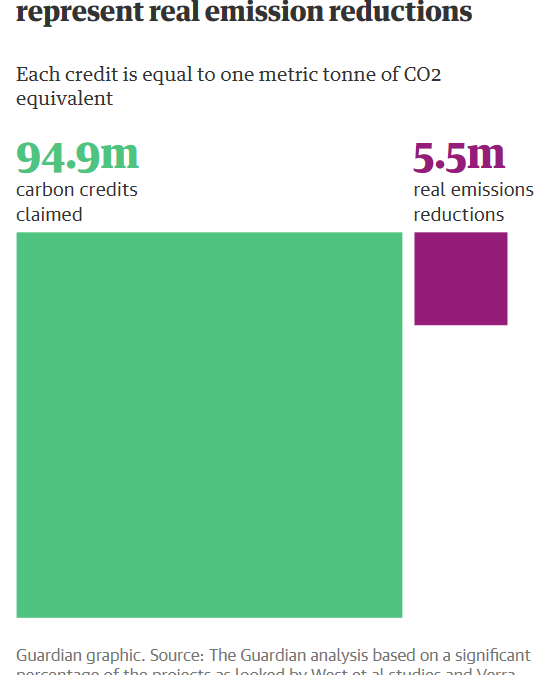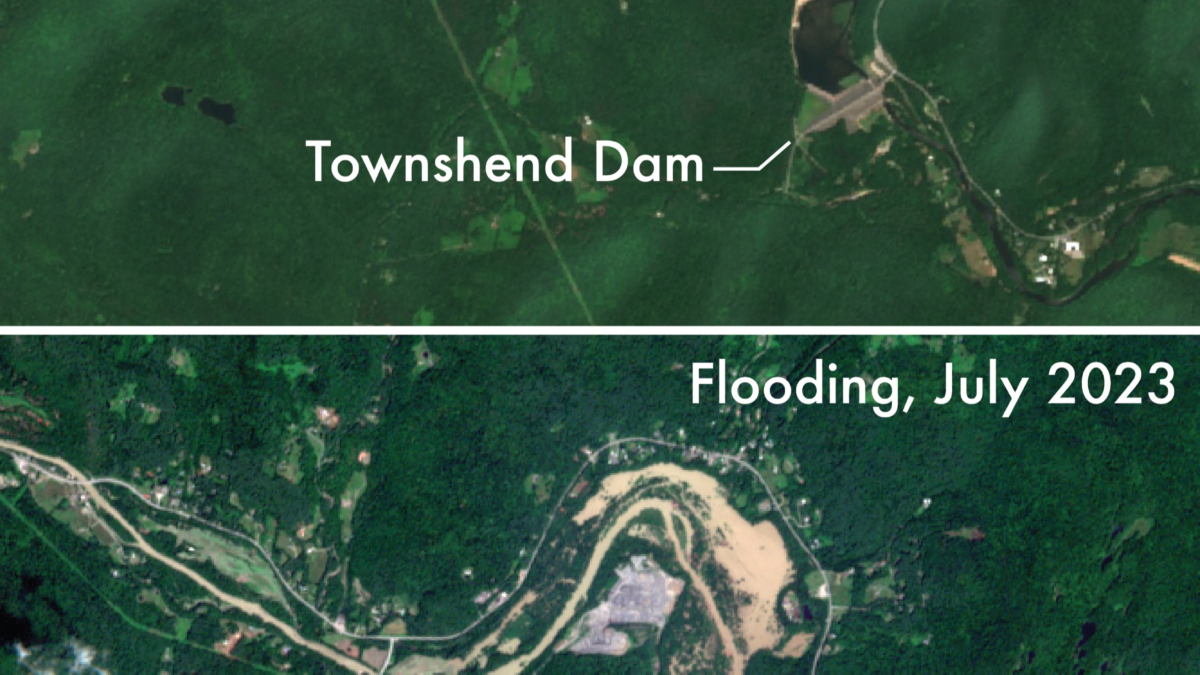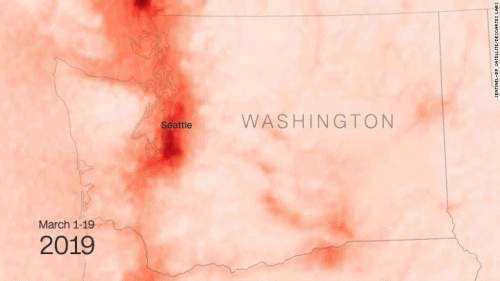Millions of people at risk in Nigeria after worst floods in a decade – More than 1.3 million displaced – Cholera outbreak sickens 6,000 – 100,000 hectares of farmland underwater – Rains to continue through November – “This is a catastrophe indeed. All of these wrong things are happening at the same time.”
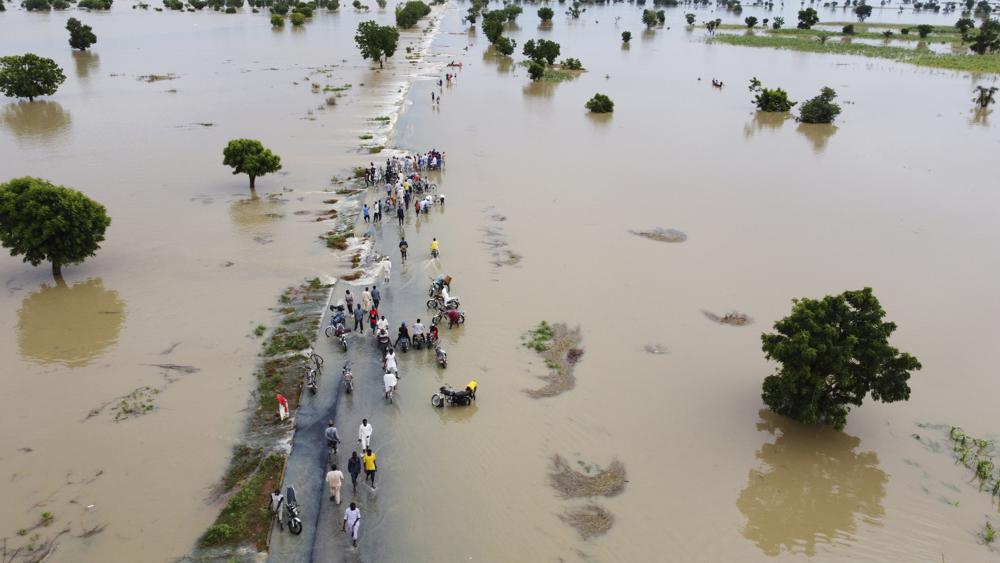
21 October 2022 (UN News) – More than 2.8 million people have been impacted by Nigeria’s worst floods in a decade, with 1.3 million displaced and hundreds of lives lost, said the UN chief on Friday, expressing his sadness at the devastation.
Infrastructure and farmland have also been damaged, said the statement issued on behalf of Secretary-General António Guterres, worsening the cost of living across the country.
He extended his deepest condolences to the Government of Nigeria and to the affected families, reiterating the UN’s continuing “commitment to supporting the Government of Nigeria in this challenging time.”
More than 1.5 million children at risk as devastating floods hit Nigeria.
UN Children’s Fund, UNICEF, said that 60 per cent of those in need were children, who are at increased risk of waterborne diseases, drowning, and malnutrition.
The floods have affected 34 out of the 36 states in the country, and over 600 people have lost their lives, with 200,000 houses either partially or fully damaged.
In the northeastern states of Borno, Adamawa, and Yobe, a total of 7,485 cases of cholera and 319 associated deaths were reported as of 12 October 2022, and rains are expected to continue for several weeks, along with rising humanitarian needs.
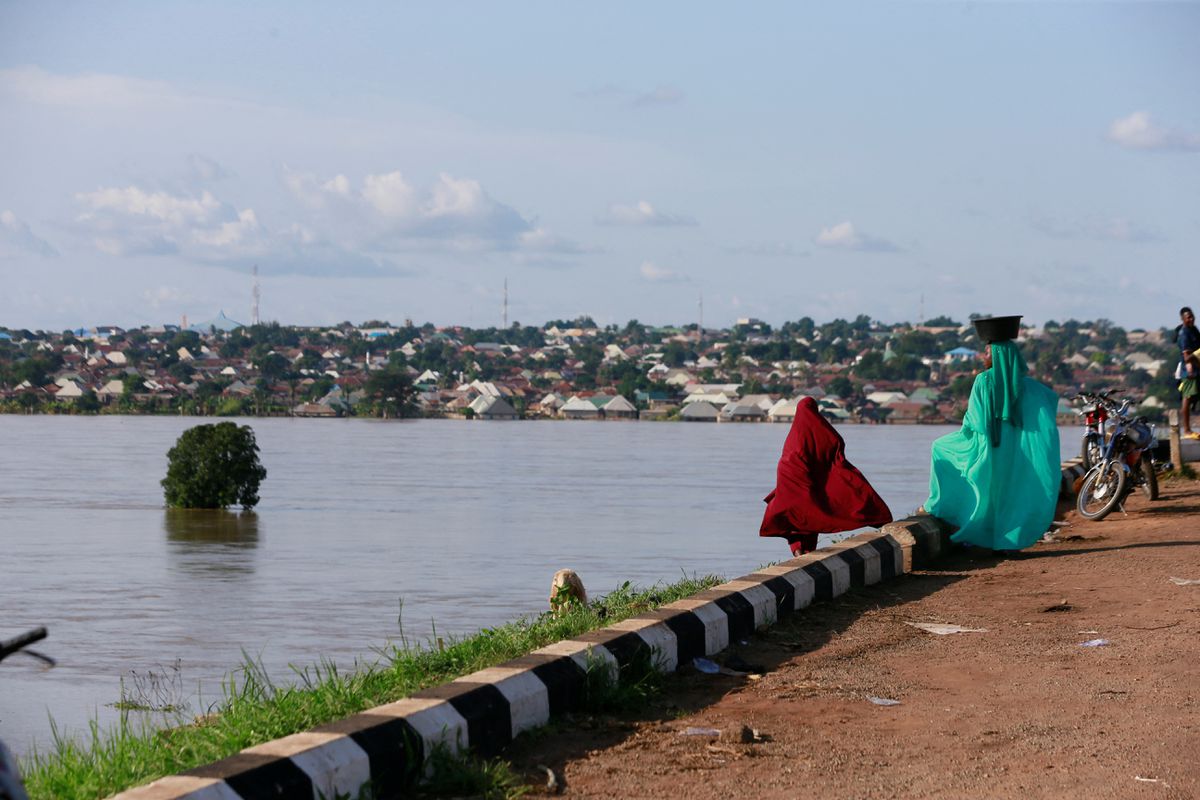
‘Extremely vulnerable’
“Children and adolescents in flood-affected areas are in an extremely vulnerable situation,” said Cristian Munduate, UNICEF Representative in Nigeria.
“They are particularly at risk of waterborne diseases and emotional and psychological distress. UNICEF is working closely with the Government and other partners to provide life-saving assistance to those who are most in need.”
Immediate priority needs for children include health, water, sanitation, and hygiene; as well as shelter and food.
Millions at risk in flood-hit Nigeria
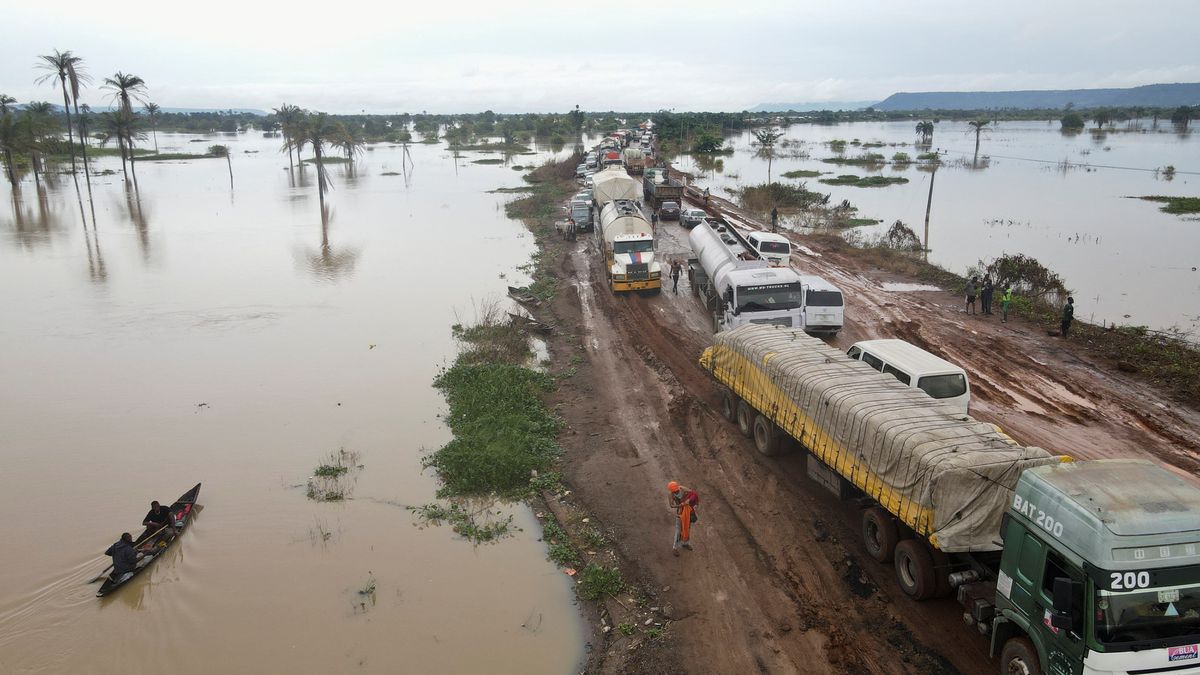
Deadly flooding in Nigeria leads to major cholera outbreak; IRC scaling up flood and health response
21 October 2022 (IRC) – Recent deadly floods in Nigeria, which have killed over 600 people and displaced 1 million more, have led to a major increase in cholera cases and other preventable diseases, warns the International Rescue Committee (IRC). The IRC is scaling up our response as well as our sanitation and hygiene and health programming in order to stop the spread of cholera and save lives. The IRC calls for more resources to help us and other frontline organizations rapidly scale up to address the massive humanitarian needs in the flood affected areas.
Babatunde Anthony Ojei, Nigeria Country Director at the IRC, said, “Nigeria has not seen flooding like this in more than a decade. At least 13 government areas are experiencing a deadly cholera outbreak with more than 6,000 cases and a 4-5% case fatality ratio. The IRC needs more resources to scale up our health work to treat cholera patients and our water and sanitation programming to help us stop the spread.
Having contributed less than 1% of the world’s global emissions yet ranked in the bottom 20% of countries equipped to respond to the impacts of climate change, Nigeria is increasingly bearing the brunt of a crisis it did not cause. More frequent droughts and flooding coupled with a global economic crisis has led to increasing food insecurity. More than 1 million children in the northeast are expected to suffer from acute food insecurity this year, making them more susceptible to succumbing to diseases like cholera. The world, especially the countries contributing the most to climate change, must step up and help countries suffering its consequences.”
With more rains expected over the coming months, the IRC calls for better coordination between Nigeria and Cameroon on excess water releases and appropriate mitigation plans for communities that are in the line of impact. If nothing is done, more children and women may die from preventable diseases. The international community must step up to support those in need of life saving care in Nigeria.
The International Rescue Committee (IRC) has been working in Nigeria since 2012, providing lifesaving support to communities in Nigeria affected by natural disasters, armed conflict and other poverty related issues. The IRC runs eight field offices in northeast Nigeria and a country office in Abuja, the capital. The IRC works to help people recover and rebuild their lives by providing health, nutrition, water, sanitation and hygiene, and education services.
Deadly flooding in Nigeria leads to major cholera outbreak; IRC scaling up flood and health response
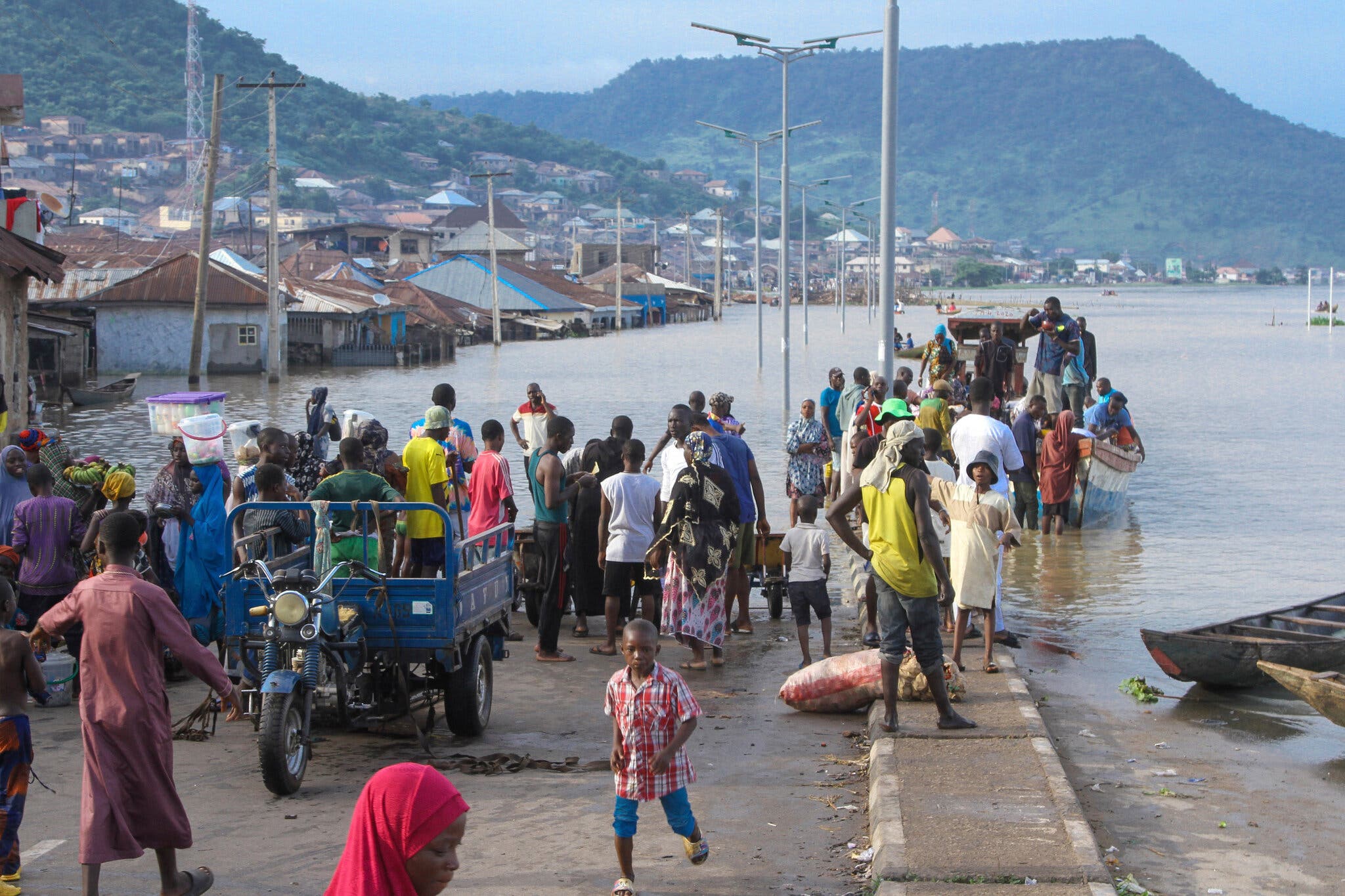
Nigeria races to assist flood victims; death toll tops 600
By Chinedu Asadu
17 October 2022
ABUJA, Nigeria (AP) – The death toll from floods in Nigeria this year has increased to 603 as local authorities race to get relief items to hundreds of thousands being evacuated from their submerged homes.
More than 1.3 million people have been displaced by the disaster, which has affected people across 33 of Nigeria’s 36 states, the nation’s humanitarian affairs ministry said late Sunday.
At least 340,000 hectares of land also have been affected, worsening fears of food supply disruptions. Armed conflict already has threatened production in the northwest and central regions of Nigeria, which produce much of what the country eats.
Nigerian President Muhammadu Buhari directed “all concerned to work for the restoration of normalcy,” according to a statement issued by the presidency.
Nigeria experiences annual flooding especially in coastal areas but this year’s floods are the worst in more than a decade. Authorities blame the disaster this year on the release of excess water from Lagdo dam in neighboring Cameroon and on unusual rainfalls.
The flooding has worsened the humanitarian crisis in Nigeria where armed violence especially in the troubled northern region has already displaced more than 3 million people, according to the Internal Displacement Monitoring Center.
Sadiya Umar Farouq, Nigeria’s minister of humanitarian affairs, warned that five states are still at risk of experiencing floods up till the end of November. [more]
Nigeria races to assist flood victims; death toll tops 600
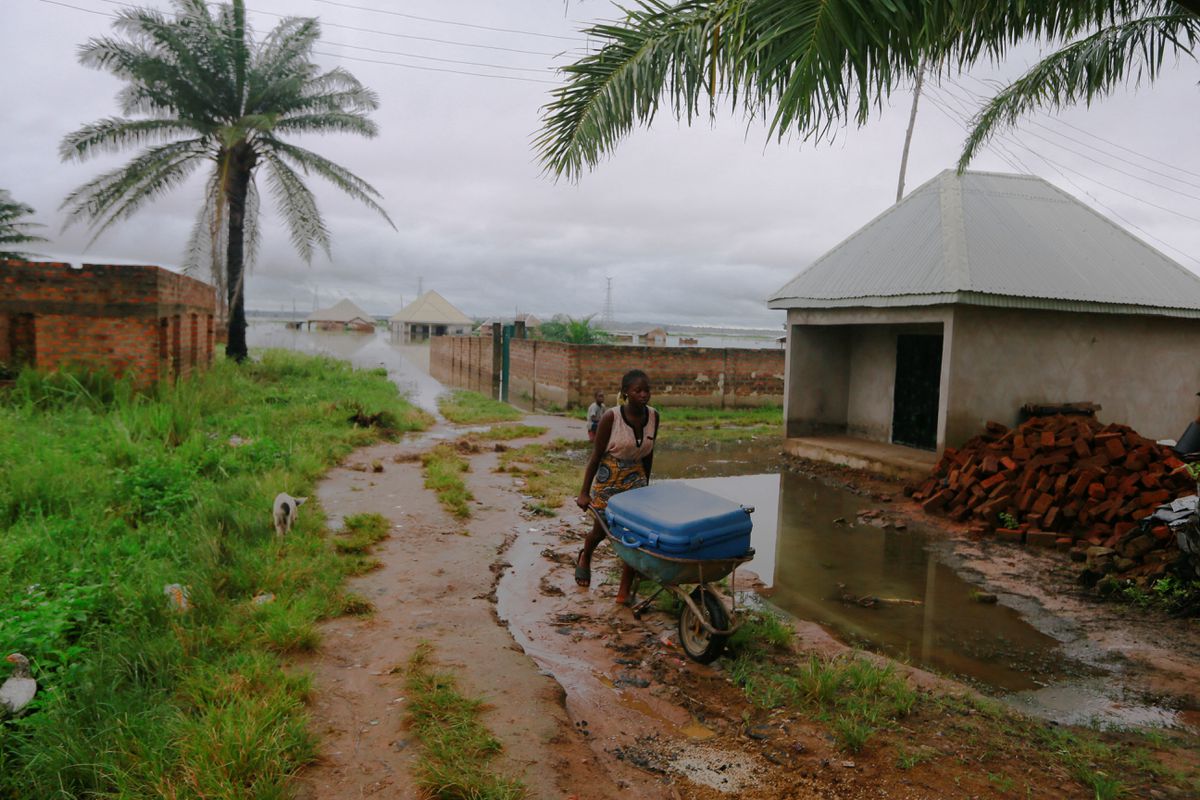
In Nigeria’s food basket state, floods wash away homes, crops and hope
By Abraham Achirga and Libby George
5 October 2022
MAKURDI, Nigeria (Reuters) – Victoria Okonkwo sits in a canoe as neighbours paddle her away from her house in Nigeria’s food basket, Benue state, which is now under water – along with more than 100,000 hectares (247,100 acres) of farmland.
“It was last week that it started, so I left thinking that the water will not be this much,” Okonkwo, 45, told Reuters. “Now I am displaced with my children.”
Okonkwo is among at least half a million Nigerians affected by flooding in 29 of Nigeria’s 36 states this year. Farmers say the rising waters will push food bills higher in a nation where millions have fallen into food poverty in the past two years.
Farming was constrained by flooding and food shortages and COVID-19 restrictions in 2020. Prices shot higher due to this year’s war in Ukraine and nationwide insecurity that has pushed thousands of farmers off their land.
“This is a catastrophe indeed,” said Dimieari Von Kemedi, chief executive of Alluvial Agriculture, a farm collective. “All of these wrong things are happening at the same time.”
Farmer Tersoo Deei, 39, said 2 hectares (5 acres) of her rice and nearly all her soybeans in Benue were underwater. What she had harvested she has to sell now, before it has dried, because her house washed away.
“I do not have any option but to sell my rice paddy because there is nowhere to keep it,” the mother of four told Reuters.
Nigeria-based commodities exchange AFEX estimates flooding and other factors will cut maize output by 12% year on year, and rice by 21%. That is a serious problem for a nation where inflation hit a 17-year high in August, led by food inflation at 23.12%.
“What we are seeing currently is the worst case… at least in the last decade,” David Ibidapo, AFEX’s head of market data and research, said of the flooding. “This is a very big challenge to food security.”
In Nigeria’s food basket state, floods wash away homes, crops and hope
